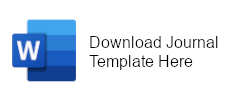Digitalization Application on Pump Stuck Identification Procedure an Effort to Support Pump Failure Reduction in Mature Steam Flood Field
Kata Kunci:
Digitalization, Pump Stuck, Floating Rod, TroubleshootAbstrak
Pump stuck and floating rod are one of the main contributors to pump failure in mature steam flood field. In total there are ~1000 pump stuck and floating rod events per year occurs in D field, resulting in an oil loss of ~200 MBO. The main cause of those issue is sand problem that triggered by degrading well bore screen liner integrity over time.
One of the initiatives to overcome the problem is the pump stuck identification (PSI) procedure which is troubleshooting procedure that conducted by field operator before the well finally declared as pump stuck and scheduled for rig work. The procedure includes several steps based on historical best practices which include surface facility and well head equipment adjustment and down hole pump trouble shooting.
However, in practice this PSI troubleshooting procedure was not standardized and properly recorded. This situation results in difficulties to ensure the work is carried out according to standard procedures and miss the opportunity to do lookbacks for future improvements. This situation triggered initiatives to improved success rate of PSI troubleshooting.
This paper demonstrates the use of digitalization to maximize the PSI impact. Field operators required to input the results of the PSI procedure through a loader which automatically sends the information to the database where the PSI input compliance data is tracked regularly and evaluated for future improvement. In addition, several steps of the PSI procedure have been added to improve the current PSI troubleshooting procedure.
This initiative has been fully started since the beginning of 2022 and is currently successful in maintaining the PSI compliance above 97% and successfully put back on production 87 pump stuck/floating rod wells correspond to 10,718 bbl. Oil loss avoidance and is expected to continue to increase in line with implementation consistency and continuous improvement procedures.
This initiative can be adopted in other fields in maximizing the value of troubleshooting procedure.



